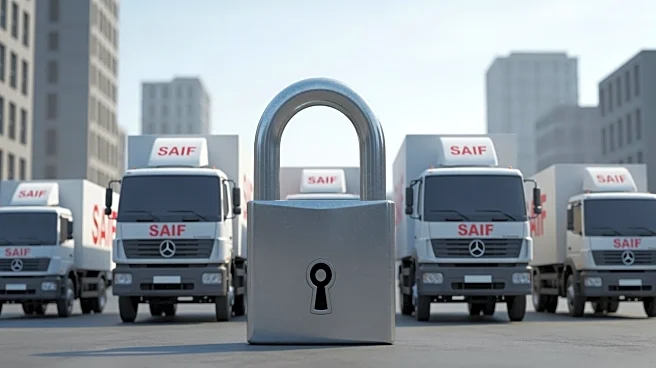What's Happening?
Hundreds of Israeli demonstrators, organized by the group Tzav 9, have blocked aid trucks en route to the Gaza Strip at the Kerem Shalom crossing. This marks the first such blockade in months and is a response
to alleged violations of a hostage deal by Hamas. The organization claims that Hamas has killed two IDF soldiers and failed to return the bodies of the hostages, prompting the blockade. The demonstration reflects ongoing tensions and dissatisfaction with the handling of the hostage situation and the broader conflict between Israel and Hamas.
Why It's Important?
The blockade of aid trucks to Gaza is significant as it highlights the fragile nature of the ceasefire and the ongoing hostilities between Israel and Hamas. The disruption of humanitarian aid can exacerbate the already dire conditions in Gaza, affecting thousands of civilians who rely on these supplies. This action also underscores the complexities of the hostage negotiations and the challenges in achieving a lasting peace agreement. The blockade may influence public opinion and policy decisions in Israel, potentially impacting future diplomatic efforts and military strategies.
What's Next?
The immediate consequence of the blockade is the potential delay in the delivery of essential supplies to Gaza, which could worsen the humanitarian situation. The Israeli government and international stakeholders may need to address the concerns raised by the demonstrators and find a resolution to the hostage deal violations. Diplomatic efforts may be intensified to ensure compliance with agreements and to facilitate the flow of aid. The situation remains fluid, with potential for further protests or escalations depending on the developments in the hostage negotiations.









